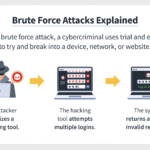In the age of digital commerce, the question often arises: Is it entirely safe to use credit cards for online shopping? This query lingers in the minds of many consumers, especially when they consider the ever-evolving landscape of cybersecurity threats that seem to haunt the virtual marketplace. However, this contemplation also introduces a lively challenge: balancing convenience with caution. As we navigate this discussion, we must explore the multifaceted nature of online credit card usage.
To commence, let’s consider the paradigm shift that has occurred in shopping habits. The ascent of e-commerce platforms has remarkably transformed our purchasing behaviors, rendering physical stores nearly obsolete for some consumer demographics. Instant gratification is only a click away, and with it, the convenience of credit card transactions. However, this ease comes at a potential peril. With reports of data breaches and identity theft echoing through the internet, consumers are justified in their hesitance.
Let’s delve into the mechanics of credit card transactions. When you enter your credit card details during a purchase, you are not merely handing over your information to a company; rather, you are engaging in a systematic process involving multiple entities. There are the merchant, payment processor, and often, a bank that all play a role in the transaction’s completion. In an optimal scenario, encrypted connections and secure servers mitigate the risk of interception. Yet the reality is riddled with vulnerabilities, and malicious entities continuously devise methods to exploit these weaknesses.
The crux of what makes credit card transactions risky lies within the notion of security protocols. Encryption is a critical component; it encodes your sensitive data, transforming it into a format that is unreadable to unauthorized users. Websites fortified with Secure Socket Layer (SSL) certificates display a padlock icon in the browser’s address bar, indicating a semblance of security. However, not all retailers implement these protective measures, and some may even resort to antiquated systems, which can leave consumer data dangerously exposed.
Moreover, another layer of complexity arises when considering the type of credit card being utilized. Not all credit cards are created equal. Traditional credit cards may offer limited protection against fraud, whereas newer options, such as virtual credit cards, provide enhanced security features. These tools generate unique card numbers for each transaction, thus rendering stolen data virtually useless. The evolution of such security measures should pique the interest of consumers who are wary yet eager to explore online shopping’s conveniences.
Furthermore, consumers must educate themselves on best practices to safeguard their information. One cannot rely solely on retailers to implement security measures; personal vigilance is paramount. Herein lies the playful question: How well do you know your online shopping habits? Are you one to reuse passwords across various platforms, thus presenting an open invitation for cybercriminals? Or do you adopt a proactive approach, utilizing distinct passwords and two-factor authentication to bolster your defenses?
Amid these considerations, the emergence of digital wallets has added a dynamic to the conversation. Solutions such as PayPal, Apple Pay, and Google Pay serve as intermediaries that can safeguard users’ credit card information. By storing payment information securely, these platforms add a level of anonymity and protection. However, herein exists another challenge: the debate over the convenience of these digital wallets versus their security implications. Are users inadvertently sacrificing their data privacy in exchange for ease of access?
In the context of regulation, it is crucial to examine the legal framework that governs online transactions. Various laws, such as the Fair Credit Billing Act (FCBA), provide a safety net for consumers against unauthorized transactions. If a consumer’s credit card is used fraudulently, they bear limited liability provided they report it within a stipulated timeframe. Nevertheless, a crucial point persists: consumers often remain unaware of their rights when it comes to online purchases. Is the onus on merchants to inform customers of these protections, or should consumers seek out this knowledge independently?
Additionally, the psychology of trust plays a significant role in online shopping. Are consumers more likely to complete a purchase when presented with recognizable brand names and SSL badges? The interplay between trust and fear of fraud can thwart a shopping experience. Hence, how do retailers instigate a culture of trust that transcends transactional interactions? This question holds promise for those in the e-commerce sphere looking to build lasting relationships with consumers.
Looking forward, a myriad of innovations aims to enhance security in online shopping. Biometric authentication, which includes fingerprint and facial recognition technology, is steadily being integrated into financial transactions. Such advancements offer alluring prospects for the future of credit card usage in online shopping. Yet, the question lingers: Will society embrace these technologies, or will concerns about privacy and surveillance overshadow their benefits?
Ultimately, the interplay between convenience and security presents an ongoing challenge for consumers engaging in online shopping with credit cards. By equipping themselves with knowledge, employing secure practices, and being discerning about the platforms they frequent, consumers can mitigate risks significantly. Yet, as we explore this digital landscape, it becomes evident that peace of mind in online shopping will always be intertwined with a measure of wariness. In the dynamic terrain of commerce, vigilance remains the most effective strategy against potential pitfalls.








Leave a Comment